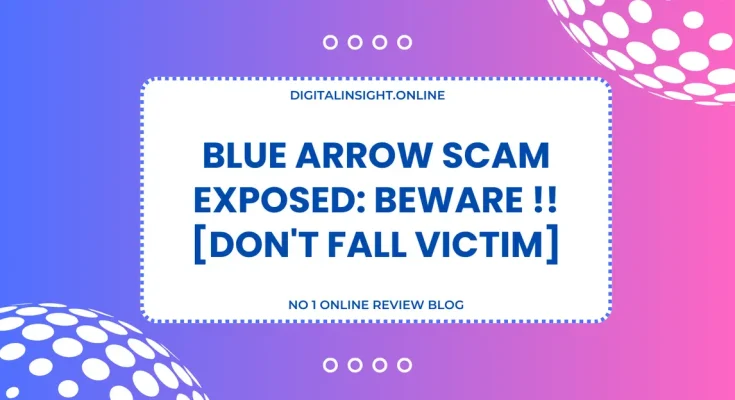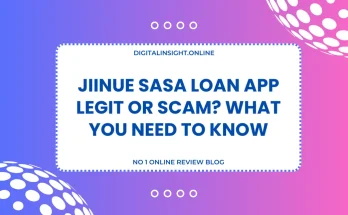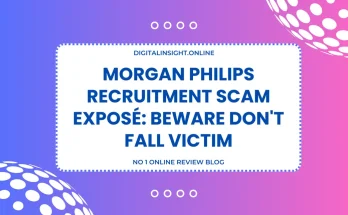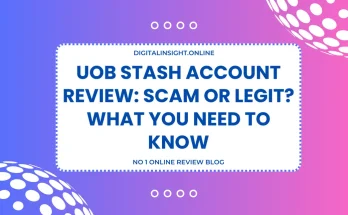When you’re on the hunt for a new opportunity, the last thing you need is an unexpected scam lurking in your inbox or mobile messages.
In today’s digital landscape, scammers are mastering the art of deception—masquerading as reputable organizations like Blue Arrow Recruitment Agency.
In this guide, we’ll uncover everything you need to know about the blue arrow scam, expose the tactics behind blue arrow recruitment text messages, and highlight what genuine Blue Arrow communications really look like.
Key Takeaway: Scammers are using the name “Blue Arrow” to gain your trust. They send out unsolicited job offers via text messages, WhatsApp, and email, promising lucrative job opportunities in exchange for personal details or upfront fees. Protecting yourself starts with knowing the warning signs and understanding how to verify legitimate communications.
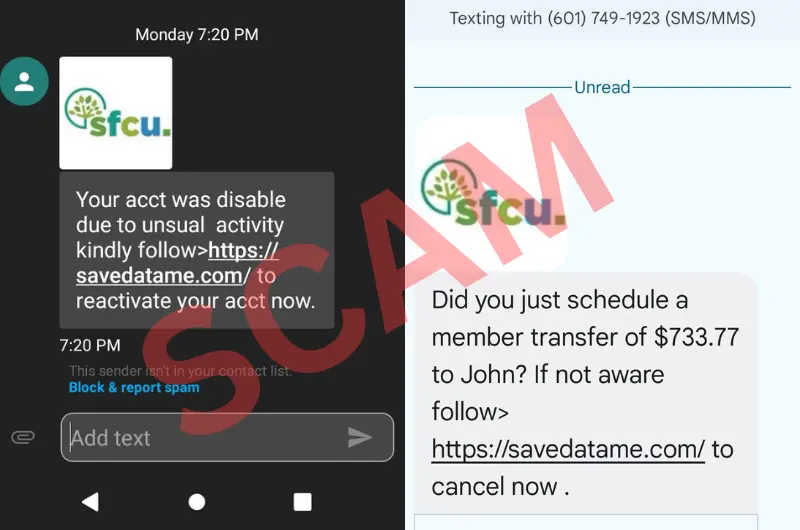
Overview of the Blue Arrow Scam?
The blue arrow scam primarily involves fraudsters pretending to be representatives of Blue Arrow Recruitment Agency.
These scammers use multiple channels—from SMS and WhatsApp to emails—to lure unsuspecting job seekers with promises of exclusive job placements and high salaries.
If you receive a blue arrow recruitment text message or a suspicious WhatsApp message from a number claiming to be from Blue Arrow, be cautious. Legitimate recruiters rarely reach out to candidates you haven’t previously contacted.
Scammers often lure victims by promoting attractive terms, such as remote work, unusually high pay, or flexible working hours.
One of the biggest red flags is a request for personal data (bank details, ID copies, or national insurance numbers) or an upfront payment for supposed administrative or processing fees.
Fraudsters will sometimes provide a fake Blue Arrow recruitment whatsapp number, or even send blue arrow scam text messages that mirror official communications, making it hard to distinguish authenticity at a glance.
Pro Tip: Remember, genuine Blue Arrow recruitment agency messages will never ask for sensitive personal details via unsecured channels or request any form of payment from you in exchange for a job.
Why Scammers Use the Blue Arrow Name
Blue Arrow is a well‑known recruitment agency with a reputable name in the industry. Scammers exploit this recognition to instantly build credibility.
By using an established brand, fraudsters can bypass initial skepticism, especially among job seekers eager for career opportunities.
How Scammers Operate: Their Tactics and Techniques
1. Multi‑Channel Communication
Text Messages and WhatsApp:
You might receive a blue arrow recruitment text message that seems urgent or unusually well‐crafted. Scammers use short messaging services and WhatsApp to connect with potential victims quickly, knowing that most people don’t have time to verify details before responding.
Example:
A message might read, “Congratulations! You have been shortlisted for an interview with Blue Arrow. Please call the following number immediately: [fake number].”
This approach is designed to induce a rapid response before you can think twice.
Emails:
Blue arrow scam emails are crafted with professional layouts and use company branding. However, subtle errors such as inconsistent logos, grammatical mistakes, or mismatched sender domains often reveal their true nature when examined closely.
2. Phishing (The Classic Bait-and-Hook)
Phishing is the oldest trick in the scammer’s playbook—and it still works. It usually starts with a blue arrow scam text message, WhatsApp, or email pretending to be from a known entity like a recruitment agency, your bank, or even a friend.
Scammers use fake domains and logos to trick you into clicking malicious links. These links either:
- Steal your login credentials,
- Inject malware into your device, or
- Ask you to “verify” personal details (which they’ll use to empty your account).
Example:
“Did you just schedule a member transfer of $733.77 to John? If now aware follow savedatame.com to cancel now”
Yeah… not secure at all.
✅ Red Flags to Watch For:
- Domains that look “off” (like
bluearrows-job.netlify.app) - Grammatical errors (e.g., “your acct is disable”)
- Urgent demands to act NOW
3. Phony Job Offers and Interviews
Scammers invest time in building a believable scenario. They might mimic the tone, format, and even some verbiage found in genuine Blue Arrow recruitment emails. In some instances, fraudsters even conduct fake phone interviews to gain your trust before moving forward to request fees or personal data.
Key Detail:
While you might be enticed by a lucrative job offer, always remember that legitimate recruitment agencies like Blue Arrow do not require fees from applicants.
4. Impersonation Tactics
Fraudsters may:
- Use official-sounding email addresses that mimic Blue Arrow’s domain.
- Share seemingly authentic documents such as counterfeit appointment letters or digital signatures.
- Offer contact numbers that, on quick inspection, resemble the blue arrow recruitment whatsapp number used by the legitimate agency.
5. Social Engineering and Urgency
Every minute matters for scammers. They rely heavily on tactics that create a sense of urgency:
- “Act now” messages: The language will press you to take immediate action, often with phrases like “last chance” or “offer expires soon.”
- Fear of Missing Out (FOMO): They exploit your career aspirations by promising opportunities that seem unique or extremely time-sensitive.
Insight: This urgency technique is common among many types of scams. Taking a moment to verify an offer is the smartest strategy you can adopt.
Recognizing Genuine Blue Arrow Recruitment Communications

Official Communication Channels
To differentiate between a genuine offer and a scam, consider these key points:
1. Website and Email Verification: Always compare the sender’s email against the official Blue Arrow website. Genuine emails use the company’s domain name.
Look for contact numbers and other details on the official website. If your message deviates even slightly, it’s likely a scam.
2. Personalized Greetings: Genuine Blue Arrow recruitment agency emails will include your name and may reference details from your application or professional background.
3. Consistent Branding: Verify that the logos, fonts, and overall design of the message match those available on Blue Arrow’s official online platforms.
4. No Fee Requests: Authentic recruitment offers will never ask for an upfront fee. If a message instructs you to pay for processing or job placement, it’s a scam.
Remember: If something doesn’t add up, reach out to Blue Arrow directly. A quick phone call or email to their verified contact point can save you from potential fraud.
How to Cross-Check Suspicious Blue Arrow Recruitment Text Messages
When you receive a blue arrow recruitment text message:
- Scrutinize the Sender’s Number: Is it consistent with previous legitimate contact information? A sudden change could be a red flag.
- Google the Phone Number: A quick search might reveal discussions or warnings online about the number in question.
- Contact Blue Arrow via Their Official Channels: If you suspect fraud, confirm the authenticity by contacting them through information available on their official website.
Real-Life Red Flags: Examples of Blue Arrow Scam Text and Email
Sample Blue Arrow Scam Text Message
“Dear Candidate, you have been pre-selected for a high-paying opportunity at Blue Arrow. Please contact [Fake Number] immediately to proceed with your application and verification. Urgent action required!”
Notice how this message:
- Doesn’t address you by name.
- Provides an immediate call-to-action using a suspicious phone number.
- Creates a false sense of urgency that pressures a hasty response.
Sample Blue Arrow Scam Email
Subject: “Urgent: Your Interview with Blue Arrow – Action Required”
Content:
“Dear Applicant,
Congratulations on being shortlisted for an exclusive role. To confirm your participation, we require a nominal processing fee. Please see the attached offer letter and remit payment to the bank details provided.
Best Regards,
Recruitment Team
Blue Arrow”
Here, the use of generic greetings and requests for fees are a dead giveaway that the email is fraudulent.
Tip: If you receive such an email, do not open any attachments or click on any links, as these could be designed to infect your device with malware or steal your personal data.
How to Protect Yourself: Step-by-Step Action Plan
1. Verify the Source Immediately
Before engaging with any communication that claims to be from Blue Arrow, perform these verification steps:
- Visit the Official Website: Compare the contact details provided in the message with those listed on Blue Arrow’s official website.
- Call the Official Number: Use the phone number provided on their website, not the one in the suspicious message.
- Cross-Reference Email Addresses: Ensure the email domain matches the one used on official communications.
2. Do Not Share Sensitive Information
Never reply to unexpected recruitment messages with personal details. Scammers rely on acquiring sensitive information to commit identity theft, fraud, or unauthorized bank transfers.
Security Reminder: Trusted organizations will never ask you to provide personal data via insecure channels such as SMS or WhatsApp.
3. Report the Scam
If you believe you’ve received a fraudulent message:
- Report it to the Fraud Department of Blue Arrow: They often have a dedicated team for handling impersonation scams.
- Notify Relevant Authorities: In many countries, agencies like the Federal Trade Commission (FTC) or Action Fraud in the UK accept reports on such scams.
- Warn Your Network: Share your experience on social media and job-seeking forums to help warn others about potential scams.
4. Educate Yourself Regularly
Awareness is the best defense against scams:
- Follow Trusted Sources: Subscribe to alerts and newsletters from job boards, career blogs, and cybersecurity organizations.
- Engage with Online Forums: Platforms like Reddit or LinkedIn often have communities where professionals share their personal experiences with scams. Real user discussions can serve as early warnings for emerging fraudulent tactics.
Resource Suggestion: Websites such as FTC.gov and ActionFraud provide updated information and real-time alerts on various types of scams. These are indispensable resources for both job seekers and professionals in any industry.
Why Do People Fall for Blue Arrow Recruitment Scams?
Job seekers are often very optimistic about new opportunities. When approached with a seemingly irresistible offer from a trusted name like Blue Arrow, it’s easy to let caution slip.
By mimicking the tone and style of authentic recruitment communications, scammers create a credible façade.
The “act fast” mentality instilled by urgent messages over SMS or WhatsApp can cloud one’s judgment. By the time a recipient realizes something is amiss, they may already have shared sensitive information or made an unwanted payment.
This psychological manipulation isn’t just about tricking you—it’s about banking on your willingness to take risks for a chance at career advancement.
In environments where competition is high and opportunities seem few and far between, scammers have found a vulnerable target.
How to Distinguish Between a Genuine and a Scam Message
A Quick Checklist
Use this cheat sheet anytime you’re unsure about a recruitment message:
- Sender Verification: Is the sender’s email or phone number consistent with official Blue Arrow records?
- Personalization: Does the message address you by name and reference details you recognize?
- Request for Payment or Personal Data: Does the message request bank details, upfront fees, or any sensitive personal information?
- Urgency and Threats: Is the message pressuring you to act immediately without giving you time to verify?
- Grammar and Formatting: Are there noticeable errors in spelling or formatting that aren’t typical of professional communications?
Case Studies
Case Study 1: The WhatsApp Deception
A recent report from multiple online job forums detailed how scammers targeted job seekers by sending blue arrow recruitment WhatsApp messages.
The messages claimed the recipient had been shortlisted for a remote role with high pay. Excited by the prospect, the individual responded, only to find themselves asked for a processing fee.
Once the money was transferred, all contact was lost.
Lesson Learned:
Always verify the sender’s identity before engaging with any offer. If in doubt, contact Blue Arrow directly using verified contact information from their official website.
Case Study 2: The Email Impostor
Another victim reported receiving a professional-looking email that appeared to originate from Blue Arrow, complete with a digitally signed attachment and company logos.
However, upon closer inspection, the email domain did not match the official domain listed on Blue Arrow’s website.
The recipient reported the incident to both Blue Arrow and local authorities, helping prevent further fraudulent activity.
Lesson Learned:
Even when an email looks “perfect,” discrepancies in sender details and the presence of unsolicited attachments should be taken as warning signals.
Best Practices When Job Hunting Online
1. Always Use Trusted Job Portals
Stick to reputable job websites and official company career pages. While social media can be useful for networking, be cautious about unsolicited offers made directly through messaging apps.
2. Engage in Two‑Factor Verification
Whenever possible, enable two-factor authentication on your email accounts and social media profiles. This added layer of security can help prevent unauthorized access, especially in cases where scammers attempt phishing attacks via blue arrow scam email links.
3. Update Your Cybersecurity Knowledge
The digital landscape is constantly evolving. Regularly review cybersecurity news from trusted outlets, stay updated on common scam tactics, and understand the latest phishing techniques. This proactive approach will empower you to recognize and steer clear of fraud.
How Blue Arrow Recruitment Agencies Respond to the Scam
Official Statements and Advice
The legitimate Blue Arrow Recruitment Agency has issued clear statements on how to handle suspicious communications. These statements underscore two critical points:
- They stress the importance of verifying any offer through official channels.
- Blue Arrow encourages prospective candidates to avoid sharing personal information through text messages, WhatsApp, or non-secure emails.
In a recent public advisory on professional networks such as LinkedIn, Blue Arrow urged job seekers to report any blue arrow scam text message or email they receive.
This collaborative approach between the agency and the community is aimed at minimizing the number of successful scams and protecting candidates across the board.
What to Do If You’ve Already Been Contacted
If you suspect that you have engaged with a scammer:
✅ If you’ve transferred any funds or provided bank details, alert your bank to monitor for suspicious transactions.
✅ Contact your local law enforcement or a national fraud reporting agency. In the UK, for example, Action Fraud provides a platform to log such incidents.
✅ If you suspect that your email or social media accounts have been compromised, change your passwords and enable additional security features.
Summing Up (Key Takeaways)
1. Verify Always: Never rely solely on the information provided in unsolicited blue arrow recruitment text messages, emails, or WhatsApp communications. Use official Blue Arrow contact details to confirm legitimacy.
2. No Upfront Fees: Be alarmed by any request for payment or sensitive details. Authentic recruitment processes do not require financial transactions from candidates.
3. Stay Skeptical: Scammers use urgency and tailored tactics to trick even the most cautious job seekers. Take a step back and evaluate every offer carefully.
4. Educate and Report: Use trusted resources to stay informed about the latest scam strategies. Reporting suspicious messages not only protects you but helps safeguard the entire community.
Final Thought: When faced with an enticing job offer, remember that caution and thorough verification go a long way in preventing fraud. Your career journey deserves protection from cyber scammers. Stay vigilant, be informed, and share this guide with peers who might be vulnerable to blue arrow scam tactics.
Conclusion
The blue arrow scam is yet another reminder that even well-respected brand names are not immune to fraudulent exploitation.
As scammers evolve their methods—ranging from blue arrow recruitment text messages to convincing scam emails—the onus is on you to maintain a healthy dose of skepticism.
By understanding how these scams work and knowing the red flags, you empower yourself to make better decisions, protect your personal information, and report suspicious activities promptly.
Even when job hunting online, the fundamentals of digital security are your best ally. Always verify, never pay, and spread the word about common scam tactics.
With knowledge and vigilance, you can confidently navigate your career path without falling prey to fraudulent schemes.
Additional Resources
For further reading and to stay updated on recruitment scams and cybersecurity trends, consider the following trusted websites:
- FTC Consumer Alerts: Provides regular updates on phishing and scam tactics.
- Action Fraud (UK): A resource for reporting and learning more about scams affecting professionals and job seekers.
- Blue Arrow’s Official Website and LinkedIn Page: Always cross-check any communications with the official channels provided by Blue Arrow to ensure authenticity.
This post is part of our commitment to equipping job seekers with the latest insights on recruitment scams. If you found this guide helpful, please share it on social media and subscribe for more updates on digital security and career advice.
